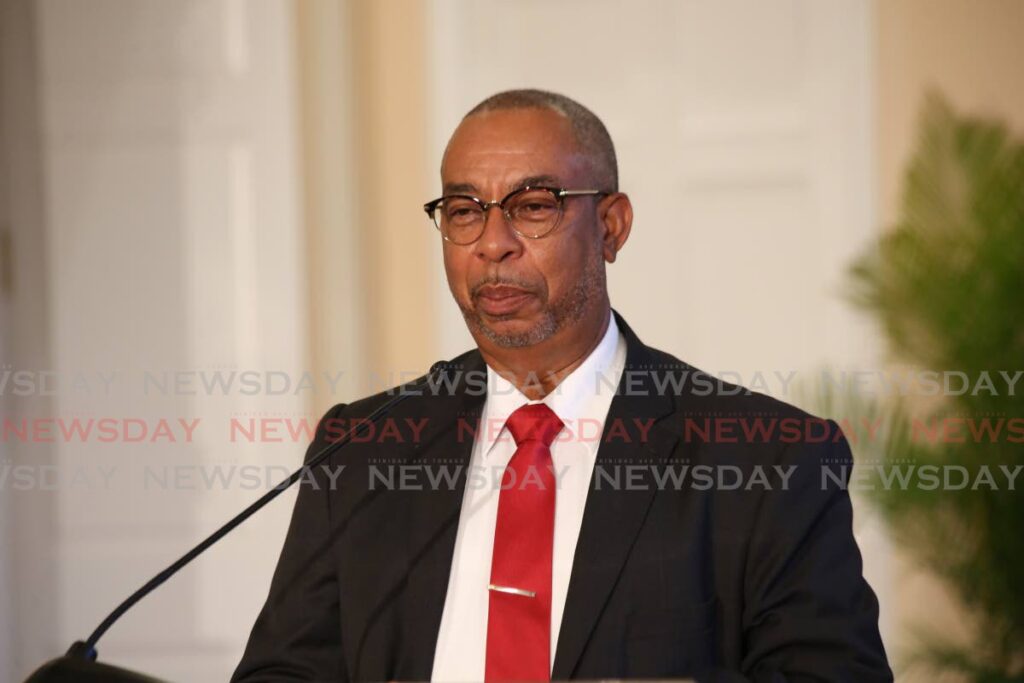Labour Minister: Worker's health status is private, but with exceptions

LABOUR Minister Stephen Mc Clashie said on Wednesday that a worker's health status was generally private, but with exceptions, such as whether an ailment impeded his ability to do his job and whether the ailment could infect other staff. Newsday sought his views after Tuesday's Senate sitting where Opposition Senator Wade Mark clashed with Public Administration Minister Allyson West.
Mark alleged the Government had breached the law (TT Constitution and Data Protection Act) by asking public servants their vaccination status, while West said it was only collective data for each department but not individual details that had been sought.
Newsday asked Mc Clashie if workers had a right to privacy of their medical details or not.
He replied, "A worker has a right to privacy under certain conditions but no right is absolute. In normal circumstances if an employee goes to his doctor and has a condition and does not want it disclosed, he has all right to do so.
"If, however, that ailment begins to affect his ability to perform his duty, the employer has a right to refer him to their doctor for an analysis. Now that isn't done lightly. It has to be some continuous issue that appears to prevent the worker from performing his duty."
Mc Clashie said a worker has a right to refuse but, in turn, the employer could initiate some disciplinary measures based on the circumstances.
"The fundamental point is that a worker has the right to privacy regarding his medical condition. That's the bottom line."
However, he raised another issue by saying that if a worker turned up to work coughing and showing signs of an infectious disease, the employer had a right to protect other workers from infection by suspected covid19.
"They might direct the employee to the company doctor. He cannot stay on the company compound coughing and sneezing and 'blowing cold', particularly in a pandemic."
What about ailments posing potential but not yet actual harm, such as arthritis? Mc Clashie replied, "There are certain jobs within the industry, for instance a heavy-crane operator...A heavy-crane operator with arthritis is not a good idea."
Mc Clashie said, in such cases, the employer aught do an assessment before the worker goes to use heavy equipment, just as a worker might be sent for a drug test. "But you wouldn't do the same thing for somebody in a clerical position. So it really depends on the situation and the industry you are in."
He said companies such as oil and gas sector would do a risk mitigation for particular duties to determine if a certain worker can performing those duties safely or is at risk.
Asked if an employer can ask new potential hirees if they have any ailment that could affect their job performance, Mc Clashie said yes.
"It is done now. Before you get a job you go for a pre-med."
He said an employer might decide an interviewee with runaway hypertension presented too much of a health risk, including a huge financial burden on the company's insurance plan, especially should he die on the job and payouts need to be made to his surviving relatives.
Asked if an employer can ask an existing worker his vaccination status, Mc Clashie said they can do so in order to arrange the safe layout of workers in the workplace.
"It is common sense to find out the status of people."
However, he said an employer cannot force an existing worker to get vaccinated, as they cannot change a worker's terms and conditions unless the representative trade union says so.
Section 4 of the TT Constitution enshrined fundamental human rights and freedoms including "the right of the individual to respect for his private and family life."
The Data Protection Act (section 30) says, "Personal information shall not be collected by or for a public body" except for certain circumstances. These are, (a) the collection of that information is expressly authorised by or under any written law; (b) the information is collected for the purposes of law enforcement; or (c) that information relates directly to and is necessary for an operating programme or activity of the public body."


Comments
"Labour Minister: Worker’s health status is private, but with exceptions"